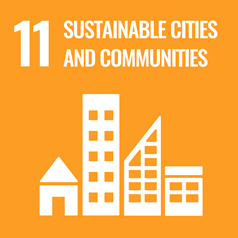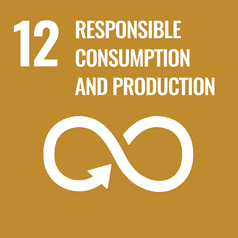Fossil Fables strikes gold at 2024 Australian Good Design Awards
A unique exhibition which explores Australia’s complex relationship with coal mining has been recognised with a gold accolade in the prestigious 2024 Australian Good Design Awards.

Winning the Architectural Design category, Fossil Fables vividly illustrates the consequences of coal mining on the environment and communities through drawings, scale models, photographs, archival materials, and immersive installations.
The exhibition presents the work of the Global Extraction Observatory (GEO) – a research collective founded by University of Newcastle’s Associate Professor Sam Spurr and Dr Eduardo Kairuz from Monash University to examine the effects of energy production and resource extraction through creative practice and public engagement.
Associate Professor Spurr said their work set out to question how architecture can contribute to amplifying the public's understanding of black coal mining in the Hunter Valley region of NSW.
“We started thinking about the role of architects in engaging with and communicating the issues for regional Australia on climate crisis, energy transition and extraction. That was the inspiration behind this project.”
Associate Professor Spurr, who lectures in Architecture at the University of Newcastle said as an educator her students were key in developing ideas.
“I’ve run several Masters of Architecture studio projects over the last few years in the Hunter Valley focused on extraction, energy transition, and resilient communities in regional Australia, as well as the rehabilitation of these landscapes,” Associate Professor Spurr said.
The 2024 Awards highlighted excellence across 12 design disciplines, covering more than 32 categories. This year's entries were rigorously evaluated by more than 80 distinguished Jurors from around the globe, including designers, engineers, architects, and industry leaders.
Commenting on Fossil Fables, the Jury praised “the strong conceptual framework of the exhibition, which effectively changes perceptions about energy production. The installation’s beauty and depth, coupled with its meaningful narrative, showcase an exemplary use of design to address critical environmental issues.”
The theme for 2024, ‘The Design Effect’, highlighted the crucial role design plays in shaping better products, services, spaces, and experiences while driving the transition to a more sustainable, less carbon-intensive future.
Rachel Wye, Managing Director of Good Design Australia, said this year’s Awards reflected the profound ripple effects that exceptional design can have on people, place and planet.
“The Australian Good Design Awards celebrate the transformative power of design in solving complex business, environmental and societal challenges. This year's winners showcase how design can help drive innovation, generate growth and embed sustainability principles,” Ms. Wye said.
“We are honoured to celebrate this year’s Winners, whose work not only represents design excellence, but also inspires future designers, architects and innovators. These projects stand as a testament to the power of good design and its ability to make a significant, positive impact in our world.”
The Australian Good Design Awards is the country’s most prestigious international accolade for design and innovation. The 2024 Awards were unveiled in Sydney on Friday 20 September in a ceremony at the International Convention Centre (ICC) Sydney.
Project Title:
Fossil Fables
Designed by:
Global Extraction Observatory
Associate Professor Sam Spurr, University of Newcastle
Dr Eduardo Kairuz, Monash University
Bud Rizk, Monash University
D’Arcy Newberry-Dupé, University of Newcastle
Commissioned by:
Tin Sheds Gallery with support from Monash University and the University of Newcastle
Curated by Kate Goodwin
Contact
- Media & Communications Specialist, Penny Harnett
- Phone: (02) 4921 6779
- Email: penny.harnett@newcastle.edu.au
Related news
The University of Newcastle acknowledges the traditional custodians of the lands within our footprint areas: Awabakal, Darkinjung, Biripai, Worimi, Wonnarua, and Eora Nations. We also pay respect to the wisdom of our Elders past and present.

